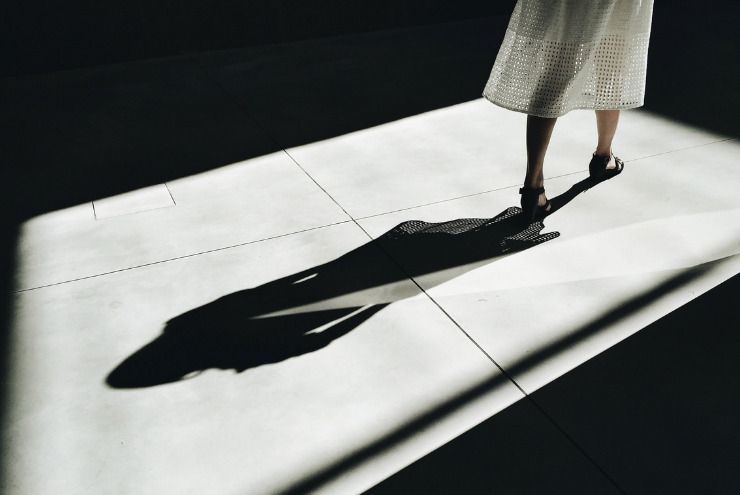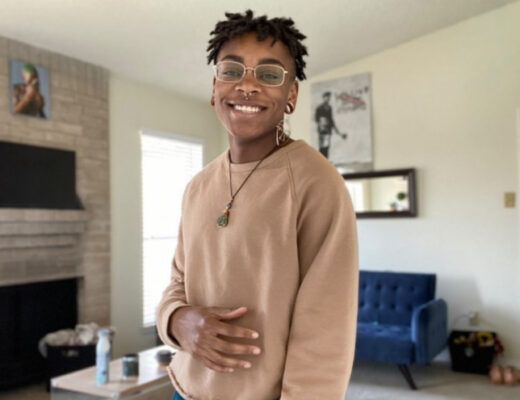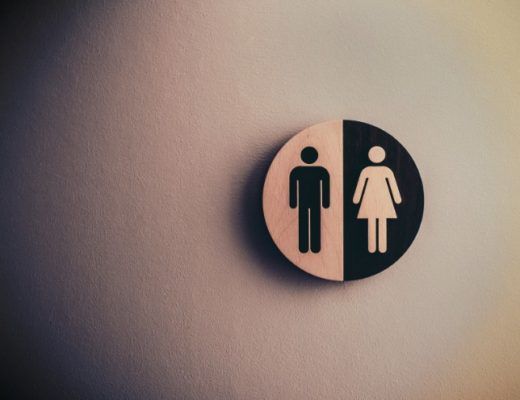By Dr. Laura McGuire
I am non-binary. I am also someone who is interested in reclaiming the term “modesty” from a feminist perspective. Finding progressive and empowering conceptualizations around dressing and behaving in ways that protect my energy—how I would define modesty—is a challenge. Bringing those resources into a fold that includes non-binary fashion, however, can feel even harder—and super limiting.
In my journey to write the Spectrum South series Queers Who Cover, I evolved in my spiritual journey as well. I have personally transversed paths alongside Christianity and Paganism, ultimately having come to my ancestorial spiritual home in Judaism. I am studying to become a Jewish chaplain, as faith is central to the ways that I move through this world. My calling to spiritual leadership and my queerness are not separate parts of my being; they are intertwined into the essence of each other. I am spiritually centered because of how the divine has shown up in my queerness. I am queer because of how I am able to understand my neshama, or divine soul. I began covering my hair in 2019, and it has since brought me a profound sense of connection to my body and the divine essence that created it. However, while I find my non-binary experience reflected in ancient Jewish texts—and feel seen in that representation—I have yet to find resources on ways to express tznius (Jewish modesty) in my non-binary body.
To begin discussing tznius, we must first define what it means from a feminist lens. For many people, tznius, or modesty, evokes feelings of shame and repression. We may have been told “modest is hottest” in ways that victim-blamed and slut-shamed us. Our bodies were policed in order to maintain soul-stifling messages about our bodily autonomy and sexual agency. These ideas about tznius, or any other form of faith-inspired modesty, are not only problematic, they are dangerous. As queer folks, modesty in religious spaces also included guilt and humiliation surrounding gender expression. We were likely told by faith leaders never to “cross-dress”—that we must maintain our feminine or masculine expressions in order to keep strict alliance with our “God-ordained” sex assigned at birth. These traumas around clothing and spiritual practice run deep and can be additionally challenging to navigate if we wish to continue to follow religious practices and be our authentic queer selves.
In the book The Beauty Suit, author Rev. Lauren Shields discusses the ways in which sexualized beauty as performance is just as oppressive as forced patriarchal modesty. Being told that we must appeal to the male gaze is present in both the demand that we cover up as it is in the enforcement or standards such as bathing suits that require us to shave in order to wear them. To take off the “beauty suit” is to decide exactly what we want to expose, literally and figurately, in the ways that we want when we want. It is to shuffle off the expectation that our presentation to the world must make us sexually appealing in order to be perceived as worthy. How often are public figures regarded as “empowered” only when they wear less clothing and present bodies that are deemed as sexually appetizing?
Tznius gets to the very heart of this, if we let it. To practice tznius is to tap into our divinity as children of Hashem. It is to remember that we are to be treated as royalty, no matter our position, economic status, or gender identity. To embrace modesty from a liberatory lens is less about what body parts we expose as it is about what energy we wish to allow into our sacred space.
Take, for example, the other common practice in this sphere—shomer negiah—or the act of not touching someone of the opposite sex. In many ways, this concept has a history of being weaponized to induce fear around sexuality; but reimagined, it is a tool for creating physical boundaries that translate into the metaphysical. How many times have I felt pressured to hug or shake hands with someone of any gender with whom I did not feel like having physical contact? Greeting the general public with a smile and nod of hello protects my energy and feels healing to a body that has been forced into contact that caused it harm. It allows me to decide who I let into my bubble and to be intentional about how that person’s energy impacts me.
On the clothing and head covering side, cloth provides a barrier between other people’s psychic energy and my own. In Kabbalah, Jewish mysticism, we see teachings on the idea that hair is like a sponge for metaphysical energy. What people think and say can enter my mind or body, and so covering more of myself is like putting up a gate, only letting in the energy I want.
Queer bodies are so often overtly sexualized. We are often seen as acceptable only if we can be consumed through fetishization by the cis/het masses. A lesbian is socially acceptable if femme and scantily clad, but if dressing in clothes that reveal little and challenge the binary, then they are mocked. To practice liberatory modesty is not to condemn nudity or sexually provocative clothing, it is to demand that these aspects of ourselves are within our own control, shared without the tempering force of capitalism, and in rejection of the patriarchy’s wishes.
So what does it mean to be enby (non-binary) and practice tznius? It means redefining my boundaries, in all forms, and feeling divinely empowered in enforcing them. It also means that I get to move around and between gendered ideas of modesty and create expressions of this practice in ways that form a mosaic in enactment. Where most resources will offer tznius clothing that is male or female, I can take elements from both to form something that is uniquely queer. It is in this space that agency, in all its forms, is reimagined and my enby soul can be freely itself.







